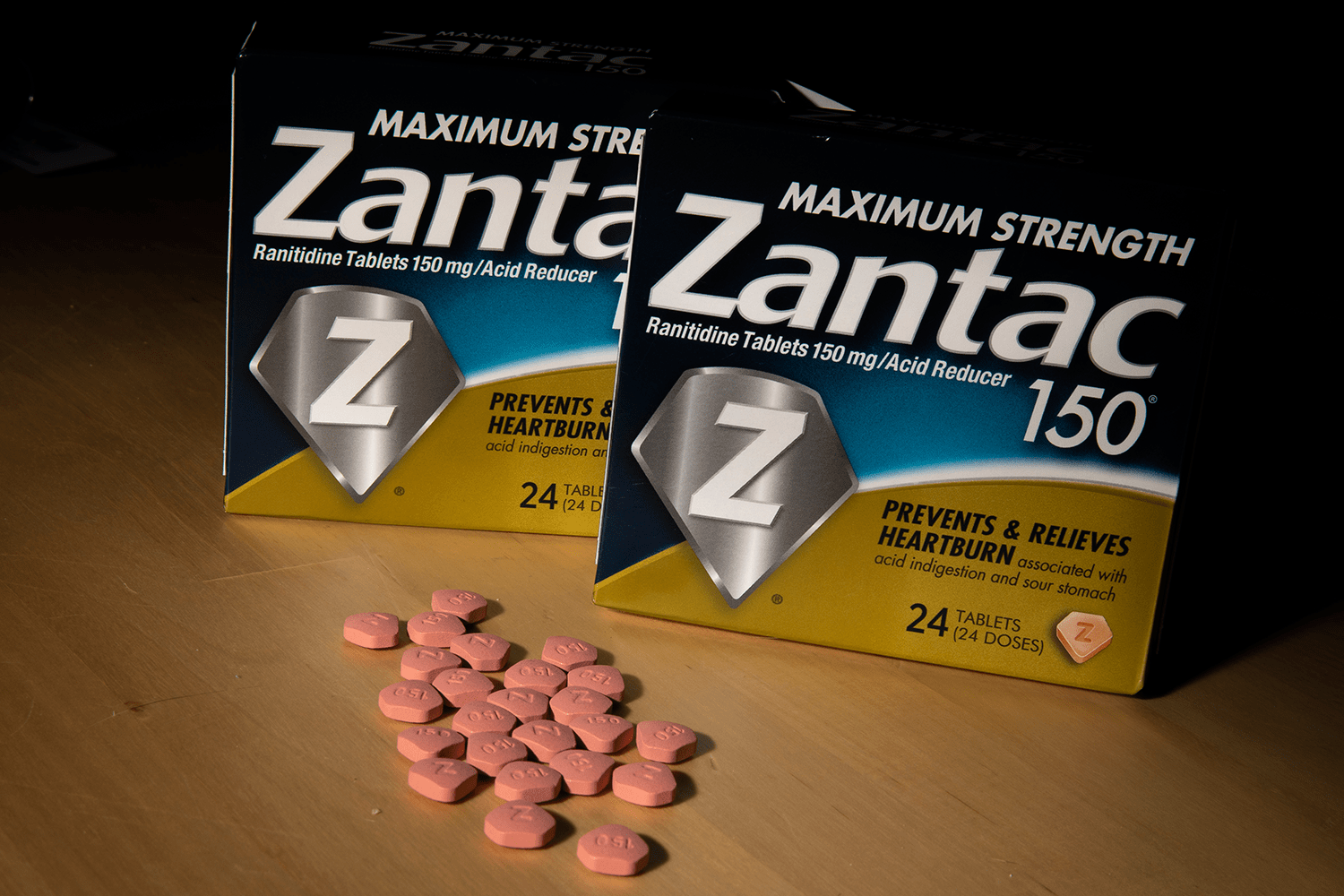Zantac and Cancer
Zantac and Cancer
Zantac and other popular medications taken by millions of people for heartburn relief were removed from store shelves across the country at the request of the Food and Drug Administration in 2020 after they were found to contain unsafe levels of the substance, N-nitrosodimethylamine commonly referred to as NDMA. NDMA has been identified as potentially increasing the risk of cancer in humans.
Multiple lawsuits have been filed throughout the United States against the manufacturers of Zantac and similar products known generically as ranitidine. If you or someone you love have developed cancer or experienced other health issues after taking Zantac, you may be entitled to file a compensation claim.
What is Zantac?
Zantac, one of the brand names for the generic drug ranitidine, is a popular heartburn medication or antacid. Many people took it to control acid reflux, gastroesophageal reflux disease or GERD, heartburn, and similar gastrointestinal disorders. It is a histamine H2-receptor antagonist or H2 blocker sold by prescription or over the counter.

H2 blockers work to decrease the acid produced in the stomach. The FDA found that NDMA levels, resulting from Zantac and other ranitidine products, actually increase over time. Studies indicated that NDMA levels in the body while on ranitidine could increase above what the FDA had identified as acceptable for humans.
Introduced to consumers in the early 1980s, Zantac and other ranitidine products quickly became popular for the treatment of a variety of gastrointestinal disorders, including:
- GERD.
- Peptic ulcers.
- Intestinal ulcers.
- Heartburn.
At first, thought to be safe for use, Zantac was heavily advertised and widely sold in the U.S. even after a link was discovered by researchers between NDMA, as found in Zantac and other ranitidine drugs, and an increased risk of cancers in humans.
Research has identified NDMA as a possible carcinogen with experiments conducted on animals indicating an increased cancer risk. Other health issues identified by researchers as linked to prolonged exposure to high levels of NDMA include abdominal cramps, vomiting, fever, jaundice, and dizziness.
Zantac and links to cancer risk
The link between NDMA and an increased risk of cancers in humans was made by researchers well before the FDA asked that the manufacturer of Zantac remove their product from the store shelves.
Some of the cancer risks that may increase from the use of products in which NDMA has been found, including Zantac and other ranitidine drugs, include the following:
- Non-Hodgkin lymphoma
- Colon cancer
- Bladder cancer
- Esophageal cancer
- Liver cancer
- Leukemia
- Kidney cancer
- Stomach cancer
- Multiple myeloma
If you experience any health issues after taking Zantac, you need to see a physician immediately for an accurate diagnosis of the condition and implementation of a treatment plan. Although it has been removed from store shelves, you may still have some at home. If you do, consult with and follow the advice of your physician about alternative treatment options for the condition for which you have been taking Zantac.
Taking legal action
A cancer diagnosis directly linked to NDMA found in Zantac may give you the right to seek compensation from the manufacturer of the product. Lawsuits throughout the U.S. have been filed against the makers of Zantac and other ranitidine drugs seeking damages, including the following:
- Payment of the cost of medical care and treatment.
- Compensation for costs related to anticipated future medical treatment.
- Lost earnings and diminished or lost future earning capacity.
- Pain and suffering you have been forced to endure.
- Punitive damages.
If you or a family member has been diagnosed with cancer after taking the prescription or over-the-counter drug Zantac, you may be entitled to sue its manufacturer for damages, but you must act right away. The law imposes limits on how long a person has to file a lawsuit against the party responsible for causing them to be injured. A free consultation with an attorney handling Zantac claims for damages will provide you with accurate information about how long you have to file a Zantac lawsuit. Do not let the company responsible for producing Zantac escape justice by inaction on your part.
Attorneys experienced in the handling of claims against drug companies know what it takes to prove a link between a diagnosed cancer or other serious medical condition and the taking of a specific over-the-counter drug or prescribed medication. These are difficult cases to prove, which is why you need someone fighting for you with proven skills, knowledge, and ability to successfully take on drug companies.
How we can help
We are a marketing service that helps people injured due to the fault of other parties recover the compensation they deserve by connecting them to attorneys committed to fighting for justice and fair compensation for the injured. Regardless of where you live, we connect you with local attorneys that handle your type of case. Whether injured because of Zantac or other dangerous drugs, a faulty medical device, or a defective consumer product, we help you find an attorney to fight for your rights.